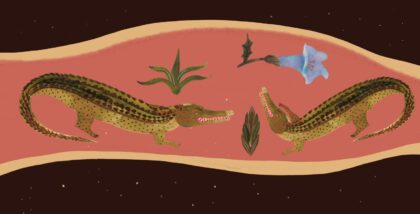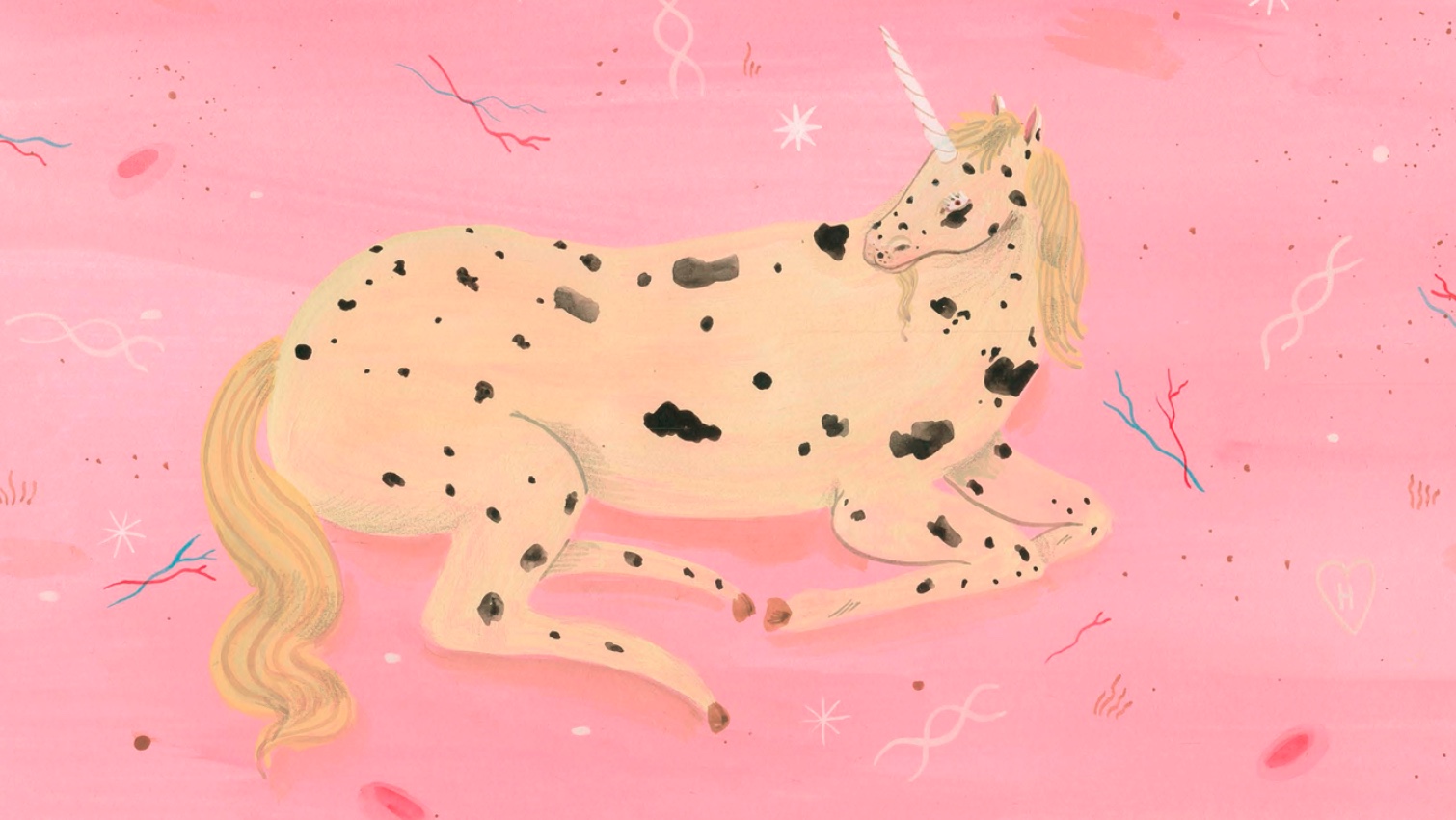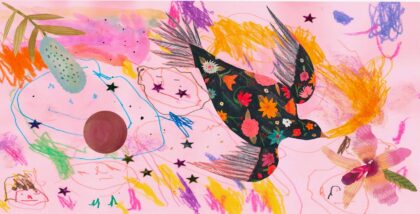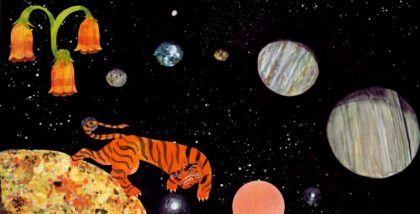In “Impossible Homes,” the second issue of our Omens volume, three poets and an essayist explore what it means to search for signs of belonging in their environments. Where brutality, erasure, and precariousness have become the norm for so many bodies on Earth, these searchings are at once tragic and ecstatic, propelling us into (through) mythological, divine, cosmic, and instinctive realms for the necessary imaginations to make, and sometimes, leave, home.
Of the one-way voyages that asylum seekers embark on from the shores of Tunisia, Farah Abdessamad writes in Finding Zenobia, “I often think about the shipwrecks; it’s hard not to. I imagine the passengers’ dread, distress, hunger, impatience, and their last breaths, as they visit the forgotten depths of Atlantis… We measure these tragedies through hearsay and accident records… [H]ow do we mourn their loss? ” In the figure of the northern bald ibis, she excavates at once a figure of unspeakable grief and a guide that affirms the desire for life in what is known to be one of the deadliest migration routes in the world.
Franny Choi, meanwhile, brings the demilitarized zone between North and South Korea into conversation with the US-Mexico border. “road runner creosote,” they write, “o to be among / such ancient friends.” In Fugue in DMZ/Frontera, we see the pressures of borders not only on the human beings who must somehow survive their crossings and separations, but on the plant and animal lives that must persist where lines of nationhood, lines of no, are being drawn.
And because un-belonging is also a place on earth, Hari Alluri’s prayer to Kabunian is simultaneously a challenge. “I love you with / the demons of myself – is that you too?” he writes to the god responsible for the creation of the universe in Filipino mythology. In Letter to the Deity Who Told Me Arriving Here Is Difficult as Welcome, we find generations continuing, making songs of the beating of “wings at glass and wire mesh.”
Finally, in Adriana Lisboa’s epic poem (translated by Alison Entrekin), Solastalgia, we are flung toward Mars and the stars, toward the farthest destinations within our perceptions of ourselves: what we have lost, what we are sick with longing for, what we are traveling to though we have yet to arrive there or depart from it –
“what does Earth look like
from inside the light
where Eros revokes the devils
what does Earth look like
from inside the green of a leaf
grazed by a free sun”
–Cynthia Dewi Oka, Editor-in-Chief
In this Issue

Letter to the Deity Who Told Me Arriving Here Is Difficult as Welcome
Do you mean the half-dull drumbeat of our wings at glass and wire mesh / is part of our freedom song?

Finding Zenobia
In recent years, Tunisia has become a main point of departure for migrants and asylum-seekers, a place from which one flees the African continent.



















